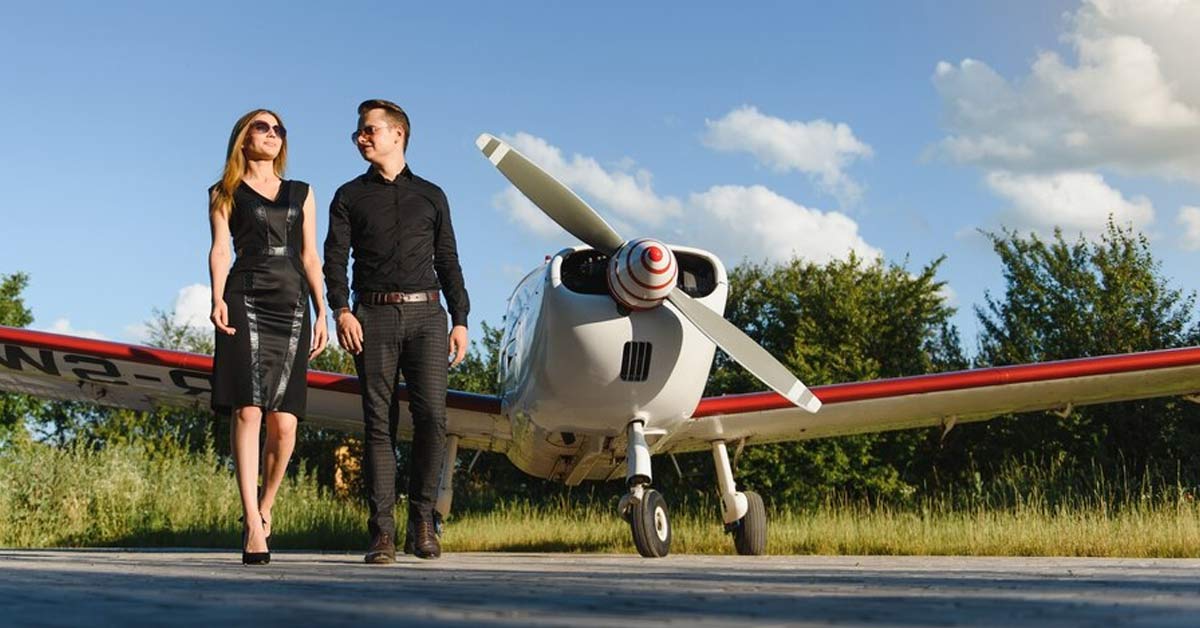Owning your own plane sounds like a dream come true for many. The thought of taking off whenever you please, having control over your schedule, and enjoying the open skies is incredibly appealing. But before you get carried away with fantasies of jetting around the world, it’s important to take a step back and consider all the practicalities involved.
Purchasing a plane isn’t quite like buying a car. It’s a big commitment that requires careful planning, significant investment, and an understanding of various technical details. Here are the essential things you should keep in mind if you’re seriously thinking about owning your own plane.
Know the Costs Involved
It’s easy to get caught up in the excitement of plane ownership, but knowing the true costs is crucial before making any decisions. First, it’s not just the price of the plane itself you need to consider – although that’s already a big chunk of the cost. You also have to think about:
- Maintenance: Planes need regular checks and services to stay airworthy. This isn’t something you can skip, and the costs can quickly add up.
- Storage: Unless you plan on building your own hangar, you’ll need to rent space at an airport. Hangar fees vary depending on location, and some airports have long waiting lists for spots.
- Insurance: You’ll need to insure both the plane and the passengers. Aviation insurance can be more expensive than typical car insurance, so it’s important to get a few quotes to understand what you’re looking at.
- Fuel: Planes don’t run on regular petrol. Depending on your aircraft, you could be looking at jet fuel or aviation gasoline, both of which can be pricey.
- Licensing and certifications: Whether it’s for yourself or for your plane, there are licences and certifications that need regular renewal and sometimes come with hefty fees.
What Type of Aircraft is Right for You?
The type of plane you choose will depend largely on how you plan to use it. Are you flying solo for pleasure, transporting a few passengers, or using it for business trips? Each scenario calls for different aircraft capabilities.
- Single-engine vs Multi-engine: Single-engine planes are often less expensive and simpler to maintain, making them a popular choice for personal use. However, if you plan on longer flights or carrying more passengers, you might need to consider a multi-engine aircraft.
- New vs Used: Like with cars, you can choose between buying new or used planes. A used aircraft might save you money upfront, but older models could require more frequent maintenance, which can increase costs over time. A new plane will be up-to-date with the latest technology and safety features, but you’ll pay a premium for that.
Don’t Skimp on Quality Supplies
This point can’t be stressed enough. When it comes to planes, using high-quality supplies is vital for both performance and safety. You don’t want to find yourself in the sky with substandard parts or fluids. Some of the supplies you’ll need to regularly stock up on include:
1. Engine oil
A crucial part of keeping your engine running smoothly. You should be looking for something like MIL-PRF-23699 engine oil, which is designed for military aircraft but is also widely used in commercial and private planes for its high performance.
2. Fuel filters
Essential for keeping contaminants out of your fuel system. Replacing these regularly will ensure that your engine stays clean and efficient.
3. Landing gear components
Your landing gear takes a lot of pressure every time you touch down, so it’s important to make sure it’s in good condition with regular maintenance and high-quality parts.
Think About the Long-Term Commitment
Buying a plane isn’t just a one-off transaction. Once you own the plane, there’s a whole list of ongoing responsibilities that come with it. One of the most important is annual inspections, which are required to keep the plane certified to fly. These inspections can uncover issues that need to be fixed, some of which can be expensive.
There’s also the matter of finding a qualified mechanic who can perform any necessary repairs. Unlike cars, you can’t just take your plane to the nearest garage. Aviation mechanics are highly specialized, and you may need to travel or wait for parts if something needs fixing.
Pilot’s License and Training
Unless you already have your pilot’s license, you’ll need to factor in the cost and time to get one. Flying a plane is no small feat, and there are different levels of licenses depending on the type of aircraft you plan to operate. Additionally, if you’re looking at flying larger planes or transporting passengers, you might need to upgrade your license over time.
Even if you already have a license, staying sharp and regularly updating your skills is essential. Many countries require pilots to undergo regular training and tests to ensure they remain competent.
Know the Regulations
Owning and flying a plane means dealing with a lot of red tape. Aviation regulations are strict and vary depending on where you’re flying. You’ll need to stay up-to-date with the rules set by your country’s aviation authority, which might cover anything from flight paths to environmental regulations. Failure to comply can lead to fines or losing your ability to fly, so it’s worth taking these rules seriously.
The Bottom Line
Purchasing your own plane can be an incredibly rewarding experience, offering freedom and adventure that few other forms of transport can match. However, it’s important to go into the process with your eyes wide open. From the costs and supplies to the ongoing maintenance and regulations, there’s a lot more to owning a plane than just picking one out and taking off. Make sure you’re prepared for the full journey, both financially and practically.






